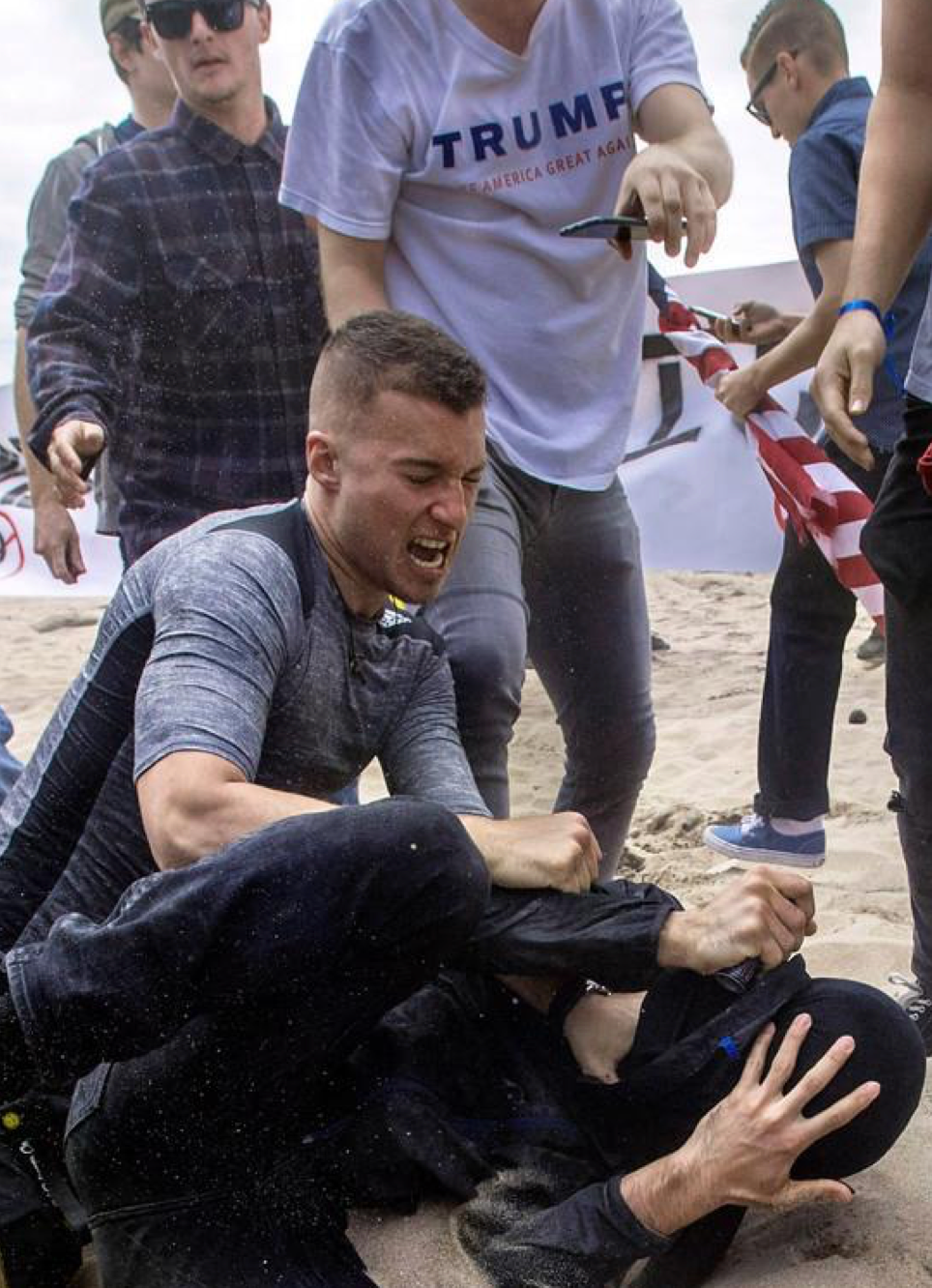How white supremacist fight clubs are building covert far-right militias
A new report details the explosive growth of neo-Nazi groups using fitness to build ‘shadow’ armies
Your support helps us to tell the story
From reproductive rights to climate change to Big Tech, The Independent is on the ground when the story is developing. Whether it's investigating the financials of Elon Musk's pro-Trump PAC or producing our latest documentary, 'The A Word', which shines a light on the American women fighting for reproductive rights, we know how important it is to parse out the facts from the messaging.
At such a critical moment in US history, we need reporters on the ground. Your donation allows us to keep sending journalists to speak to both sides of the story.
The Independent is trusted by Americans across the entire political spectrum. And unlike many other quality news outlets, we choose not to lock Americans out of our reporting and analysis with paywalls. We believe quality journalism should be available to everyone, paid for by those who can afford it.
Your support makes all the difference.White supremacist groups using the guise of fitness and martial arts to attract and grow their numbers are effectively creating a new militia network, with dozens of chapters forming in the US, Canada and across Europe within just three years, according to a newly published report from extremism researchers.
At least 46 so-called “active clubs” – which publicly promote “brotherhood” and training in combat sports and fitness while covertly advancing fascist and neo-Nazi agendas and preparing for large-scale violence – have sprouted in 34 states between 2020 and 2023, according to the report from the Counter Extremism Project.
That relatively rapid growth is alarming researchers who have closely tracked the explosion in far-right extremism and white supremacist movements in recent years, parallel to a surge in threats of political violence and violences towards marginalised groups.
“I’ve never seen a network in right-wing extremism grow so fast. Usually it takes years to build a transnational network,” report author and CEP adviser Alexander Ritzmann told VICE News, which first reported the research. “It’s concerning.”
While the groups outwardly promote group fitness events like boxing, jiu jitsu and other martial arts, the narratives surrounding their creation typically rely on white grievances and victimhood and empowerment through white supremacy, according to the report.
The groups – which were instrumental in anti-LGBT+ organizing in states across the country earlier this year – have also organised banner drops in public spaces with hateful messages and public displays of hate, often coordinating alongside or maintaining memberships with neo-fascist groups like the Proud Boys, Patriot Front and White Lives Matter.
Typical slogans include “a group of strong white men is a fascist statement in itself”; “The best strategy is to be as unpolitical as possible to be as appealing as possible”; “White unity at every opportunity”; and “make fascism fun”, according to the report.
The groups’ “White Supremacy 3.0” ideology is one espoused by neo-Nazi organizer Robert Rundo, who founded the white supremacist Rise Above Movement years before his extradition to the US from Romania in March to face charges in connection with planning and participating in riots in California.
Active clubs maintain an open network approach, encouraging individuals to start their own independent groups, and recruit white men and promote their activities at public events “like concerts, NASCAR races and local festivals” which “are also much more likely to reach young and active people,” according to a post on one active club website cited in the report.
“These demographics are far more likely to become useful members,” the report adds.
When recruiting, members “should not talk about Jews and history,” according to the report’s assessment of active club strategy. “Instead, the focus in public should be on brotherhood, community, fitness, and self-defense.”
One brand – among the many in a growing parallel right-wing economy – has specfically marketed itself around active clubs, selling T-shirts, jackets and boxing gloves, among other items with a thinly veiled far-right, white supremacist bent.
“The strategy is hiding in plain sight,” Mr Ritzmann told Voice of America. “They try to show that they’re actually just a bunch of white men doing sports together, being rather on the nice and friendly side so that law enforcement would look at this and would say, ‘This is a bit odd, but definitely, you know, not a priority for us to research now.’”
The unchecked proliferation of active clubs is likely to increase “targeted political violence and terrorism” in the US and elsewhere, according to the report.

Putting a so-called “friendly face” on far-right violence “not only allows … actors to further train the existing pool of extremists, it could also significantly foster the recruitment of newcomers” into such groups, according to the report, and prepare a “network of violence-ready individuals to serve as a shadow or stand-by army for when the need for coordinated violent action on a larger scale arises.”
The report follows growing concerns among federal law enforcement agencies, civil rights groups and extremism watchdogs as Americans’ growing tolerance for political violence intersects with a growing number of threats towards LGBT+ people and minority groups, careening towards a volatile election calendar with a leading candidate for the Republican nomination who has unleashed a constant stream of threatening statements endorsed by his supporters.
A failure to grasp active clubs’ “hiding in plain sight” approach “can lead to a dangerous misunderstanding of the scope of the threat” in the US and abroad, according to the report.





Join our commenting forum
Join thought-provoking conversations, follow other Independent readers and see their replies
Comments